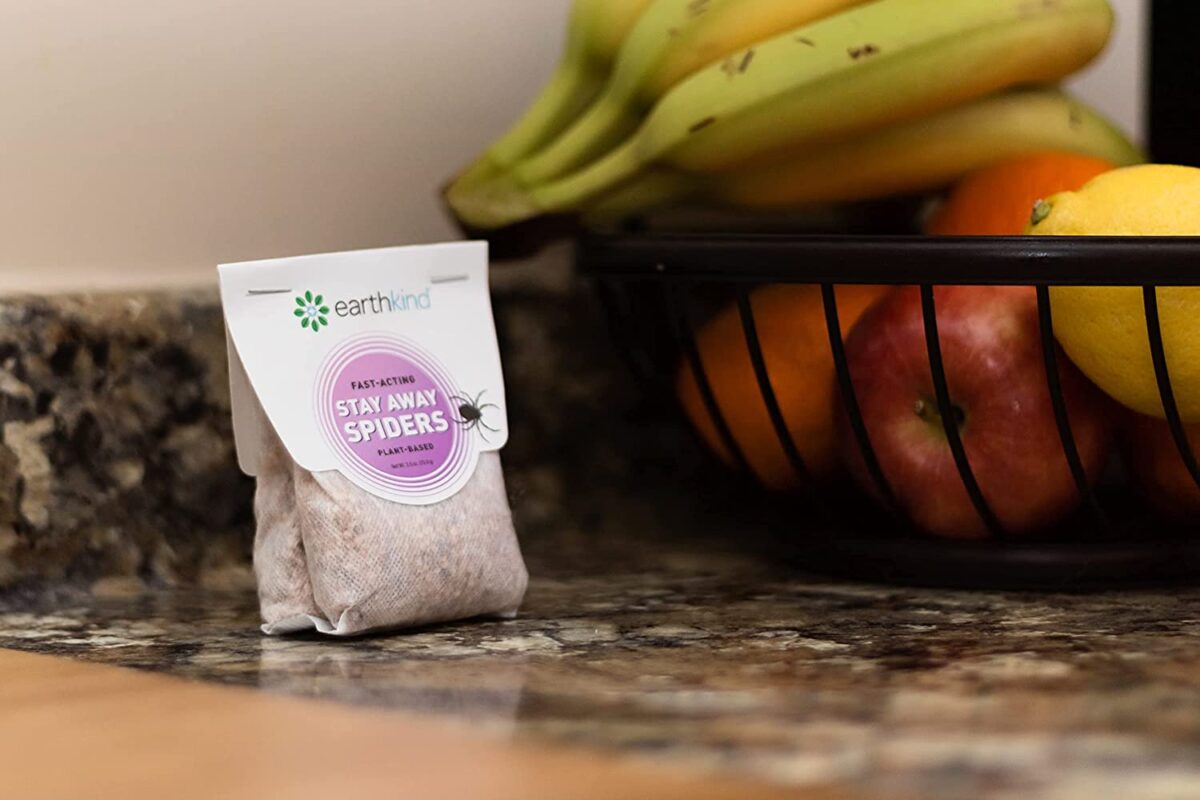
The Best Spider Repellent
Pest Strategies
While some spiders are harmless to humans and pets, other species can be poisonous. Whether your spider infestation is dangerous or simply annoying, a repellent will help keep these pests at bay. To help you find the best spider repellent for your home, Pest Strategies researched several products on Amazon. Learn more about our top picks below.
https://www.amazon.com/dp/B07XL6B8S8
Mighty Mint Spider Repellent
What We Like: This spray targets stray brown spiders, garden spiders, house spiders, and other common species before they become a full-fledged infestation. The plant-based ingredients are safe for children and pets. You can also dilute the spray with water to increase its coverage area.
https://www.amazon.com/dp/B098F53W58
Bectine Ultrasonic Pest Repeller
What We Like: These plug-and-play pest control devices are easy to activate and provide around-the-clock protection for you and your family. Because they come in a pack of six, you can place them in different rooms around your home to extend your coverage.
https://www.amazon.com/dp/B098YLSNWJ
Stay Away Spider Deterrent
What We Like: As opposed to natural sprays that leave a residue or standard insecticides that are toxic to humans and pets, this spider deterrent offers a no-mess, safe solution. It targets spiders specifically, protecting your home for up to 30 days.
https://www.amazon.com/dp/B00LCPIT1O
Rockwell Labs Dust Insecticide
What We Like: In addition to being applied out of the bottle as a powder, this insecticide can be mixed with water or a foaming agent to produce a spray, foam, or mop solution. It eliminates and prevents infestations in residential, commercial, industrial, and agricultural settings. Plus, it’s moisture-resistant, odorless formula won’t give you headaches or break down in heat or direct sunlight.
https://www.amazon.com/dp/B00530HSPW
Tempo Pest Control Insecticide
What We Like: This powder concentrate serves as a potent, odor-free perimeter barrier for spiders and other insects. It also works well on plants and trees to get rid of garden pests. Though it produces a lot of spray once it’s mixed with water, its small tub takes up minimal storage space in your garage.
Buying Guide
From chemical sprays to ultrasonic devices, there are many options to manage your spider infestation. Read our buying guide below to learn about your spider repellent options as well as other distinguishing factors that will help you make an informed purchase.
- Repellent Type: Some of the most common types of repellents that work on spiders include:
- Spray: Sprays are applied to areas where spiders and other pests frequent. They can come with natural, nontoxic ingredients or strong chemicals.
- Packet: These spider repellent products are easy to set up, as they come in ready-to-place packets or pouches. They usually contain a variety of concentrated essential oils as their active ingredients, warding off spiders and other pests with a strong odor.
- Ultrasonic Device: Ultrasonic repellers are operated via batteries or outlets. They emit ultrasonic frequencies that are undetectable to humans but bothersome to insects. Cats and dogs may be able to hear these frequencies, but they’re not bothered by them.
- Powder: Pest control powders typically utilize powerful insecticides, such as pyrethrin or cyfluthrin, to repel or kill a variety of insects. They can be applied as a powder or mixed with water to create a solution. Though they’re long-lasting and effective, they leave a powdery film on your surfaces and are toxic.
- Infestation Area: If spiders are concentrated in a small area, such as a bedroom, a single spray bottle could be a good solution. To cover multiple rooms or an entire home, consider a large bucket of powder, multiple spray bottles, or several ultrasonic plug-in devices. Mixing and matching multiple products will also ensure that any given area is thoroughly treated.
- Ingredients: Most spider repellent products contain either naturally derived ingredients or insecticide-based chemicals. Professional pest control companies tend to use the latter; however, natural spider repellents can also be useful for DIY pest control.
- Lasting Effect: If the idea of reapplying spider repellent every few days or one to two weeks isn’t appealing to you, look for a product that’s designed to last 30 days or more after a single application.
- Knockdown: This refers to how fast a repellent wards off or kills insects. Some repellents can take effect in a matter of minutes, while others work gradually over the course of several days to several weeks to create a strong and lasting barrier.
FAQs
-
Are spiders poisonous or venomous?
Most spiders are poisonous, but only a few species are venomous. Poisonous spiders release their toxins when they’re ingested. On the other hand, venomous spiders inject their toxins using fang-like body parts. Venomous spiders are the ones you should worry about, and the two most common ones you’ll see are black widows and brown recluses.
-
Are there spider-repelling plants?
Predatory plants, such as the Venus fly trap, eat spiders or other insects that venture too close. Fruit from hedge apple trees also repels insects. You can place slices of fresh fruit every six to 10 inches from each other to form a barrier, but these slices will need to be replaced daily.
-
Will diffusing or spraying essential oils repel spiders?
Essential oils, such as peppermint, neem, citronella, rosemary, and lavender, repel various insects, including spiders. In fact, many repellents on the market use some or all of these oils as their active ingredients.
Pest Strategies provides reviews of select products that are top-selling on Amazon and/or popular in consumer searches. Our team evaluates the products based on industry research, consumer reviews, pricing data, and other objective criteria. Unless otherwise noted, these product reviews are intended to help inform buying decisions for non-professionals. Because pest control products can be dangerous to your family if mishandled, we always recommend consulting with an exterminator, even if just to ask for advice on how to apply pest control products yourself.